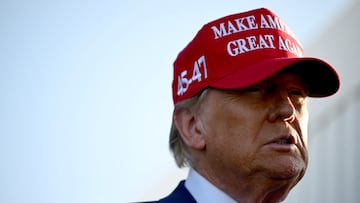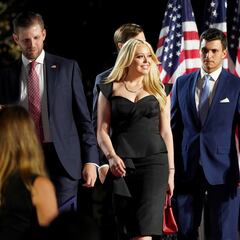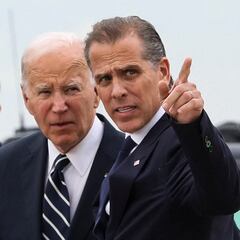Could Trump pardon himself when he becomes President in January? This is what the experts say
Legal experts are divided on this unprecedented issue, which has never been tested in court.


Though most of Donald Trump’s legal cases gaianst him have now been shut down, he was still convicted back in May in the New York hush money case. However, with presidential pardons thrown back into the spotlight with the furore around Hunter Biden’s example, discussion swirls over whetehr the president-elect could essentially set himself free.
The U.S. Constitution grants the president broad pardoning powers for federal crimes, with the exception of cases of impeachment.
Under Article II, Section 2, Clause 1 of the constitution, presidents have “power to grant reprieves and pardons for offenses against the United States, except in cases of impeachment”.
However, it does not explicitly address whether a president can pardon themselves, as there has never been a case where a president has done so. That Trump’s federal clases have been closed by the Justice Department is immaterial, as they could be reopened when he leaves office. This ambiguity has led to differing interpretations among legal scholars.
What legal scholars are saying about Trump’s cases
Some experts argue that self-pardoning would violate the fundamental principle that no one should be a judge in their own case.
“The Justice Department was right that guidance could be found in the enduring principles that no one can be both the judge and the defendant in the same matter, and that no one is above the law,” wrote Laurence H Tribe, Richard Painter and Norman Eisen in the Washington Post.
On the other hand, proponents of presidential self-pardoning argue that the Constitution places no explicit limits on the pardoning power, aside from impeachment cases.
“As a textual matter, there is nothing to prevent Trump from adding his own name to the list of pardoned individuals,” said Jonathan Turley back in 2018.
Related stories
It’s important to note that even if Trump were to pardon himself for federal crimes, this would not protect him from state-level prosecutions. The presidential pardon power only extends to federal offenses, leaving state cases, such as those in New York, beyond its reach.
Get your game on! Whether you’re into NFL touchdowns, NBA buzzer-beaters, world-class soccer goals, or MLB home runs, our app has it all. Dive into live coverage, expert insights, breaking news, exclusive videos, and more – plus, stay updated on the latest in current affairs and entertainment. Download now for all-access coverage, right at your fingertips – anytime, anywhere.


Complete your personal details to comment